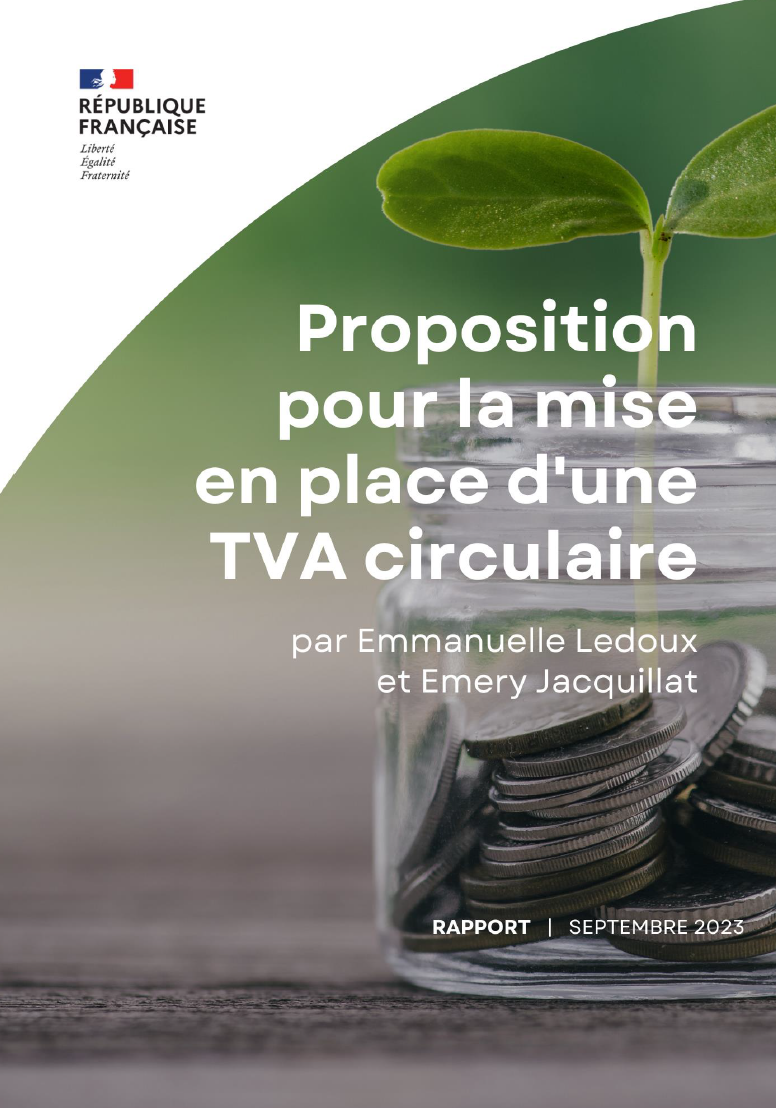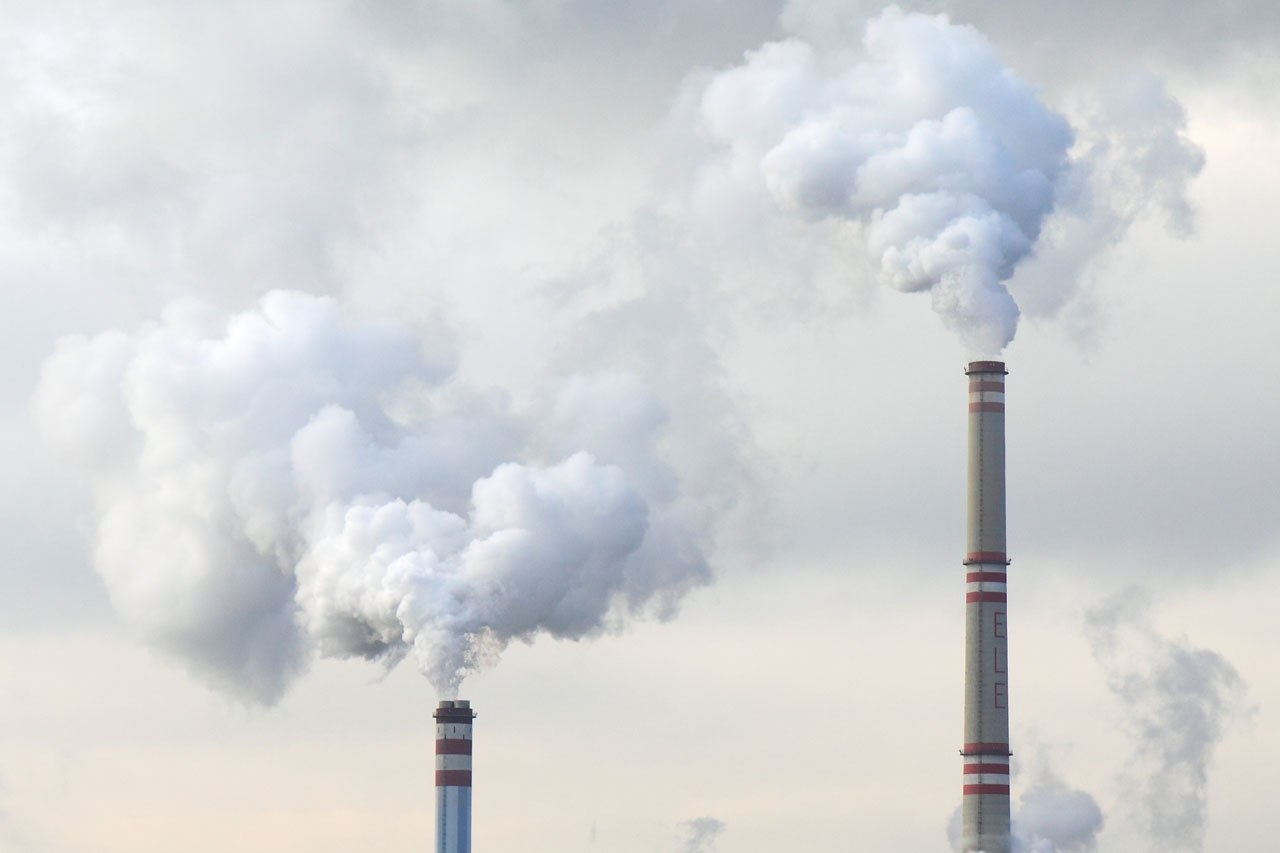On the 21st of November 2023, Emmanuelle Ledoux, Chief executive of the Institut National de l’Économie Circulaire (INEC), and Emery Jacquillat, Chairman of Camif, presented to the French Minister for Ecological Transition, Christophe Béchu, their report on circular Value Added Tax (VAT).
Scarcity of resources and circular economy
Every year, 92 billion tonnes of resources are extracted in order to sustain the functioning of our global economy, a stark contrast to the 27 billion tonnes in 1970, representing almost a 3.5-fold increase in resources extraction over the last fifty years.
Since 1850, global economic growth has been made possible primarily through the consumption of non-renewable and limited resources. Ever since, our ways of life, of consumption, and production have increasingly exerted pressure on natural resources, making it unsustainable to support our linear economic model, based on “extraction, production, consumption and disposal”.
A solution to this doomed economic model based on non-renewable resources is the transition to a circular economy which endeavours to reduce waste, promote repair, and alleviate the strain on natural resources.
The underlying philosophy of this model not only involves the treatment of waste but also entails rethinking the entire life cycle of our products from the early stages of product conception.
Consequently, there are growing concerns amongst public authorities to enact policies which promote circular economy. In France, a “bonus reparation” has been adopted, consisting of a financial aid for repairing textiles and footwear which results in a reduction of consumer bills ranging from €10 to €50. In addition, France has implemented a reparability index since 2021 which displays clear information on the repairability of electrical and electronic equipment to encourage consumers to purchase more repairable and sustainable goods.
Creating and supporting an economic model of repair
While advocating for the practice of repair is essential, its effective implementation cannot be overlooked. A striking example of this challenge lies in the dwindling number of cobblers in France. They were 45,000 in the 1950s; 8,000 in the 1980s and a mere 3,000 today. Among the remaining professionals, one-third is expected to retire in the near future.
The overall sector is facing increasing challenges due to an economically unprofitable model, an aging profession, and stagnant activity. Without cobblers, tailors and repairers, our products will not be repairable even if they are designed to be.
Therefore, to ensure the successful implementation of repair services and to meet the demand, public authorities need to create and support an economic model of repair. This involves the development of learning programs and the increase in employment within the repair sector.
Enhancing economic competitiveness of repair through a circular VAT
The report proposes a series of environmental measures, from the widespread of repair to the support of a functional economy, encompassing eco-design, remanufacturing, reconditioning, and the relocation of production.
The main proposal is the introduction of a reduced VAT rate of 5,5% on repairs to household appliances, clothing, footwear, and household linen. Such measure aim at encouraging consumers to choose repair rather than the purchase of new products, by making this option more economical.
Under the current tax regime, refurbished products are subject to the same taxation as new and less sustainable goods, despite manufacturers making greater efforts and investments. This often makes refurbished products more expensive and less competitive.
Thus, favourable taxation on repairs is a decisive tool to encourage consumers to choose more sustainable products, thereby supporting the creation of a French repair industry.
European law and circular VAT
VAT rates are strictly defined by European law, preventing member states from changing them at their discretion. Nevertheless, the European directive 2022/542 sets out eligible activities for a reduced VAT rate, which notably includes repair services for the textile and household appliance sectors.
The recent adoption of a reduced VAT rate for equestrian centre activities in the French financial law for 2024 serves as a notable precedent, affirming the feasibility for national public authorities of implementing such measures.
A circular VAT could benefit the economic model of repair and serve as the cornerstone for a French repair industry, all the while complying with European law, one can only encourage public authorities to enact and implement such policy.
Emmanuelle Ledoux heads the Institut National de l’Économie Circulaire, a think tank that brings together businesses, local authorities and academics to promote and accelerate the transformation of the economy from the linear model to a circular approach. In particular, she contributed to a study demonstrating the need for better resource management to achieve decarbonisation “SNBC sous contrainte de ressources” in June 2022 and co-authored with Grégory Richa the book “Pivoter vers l’industrie circulaire” published by Dunod in October 2022.
Emery Jacquillat is a French entrepreneur and founder of Matelsom, the leading online bedding retailer. In 2009, he relaunched Camif based on a new business model with a positive impact on economic, social, societal and environmental issues for all stakeholders. He has been relocating his production to France and Europe and boycotting Black Friday since 2017. In December 2018, Emery Jacquillat co-created the Communauté des Entreprises à Mission, an association that aims to bring to life and promote the mission-driven company as a 21st century business model. The association brings together 200 companies of all sizes that want to make a commitment to transforming capitalism and rethinking the place of business within society.
Emmanuelle Ledoux and Emery Jacquillat are the authors of the 1st report on Circular VAT, a fiscal lever to accelerate the ecological, social and economic transition. The full report can be found here (in French).







